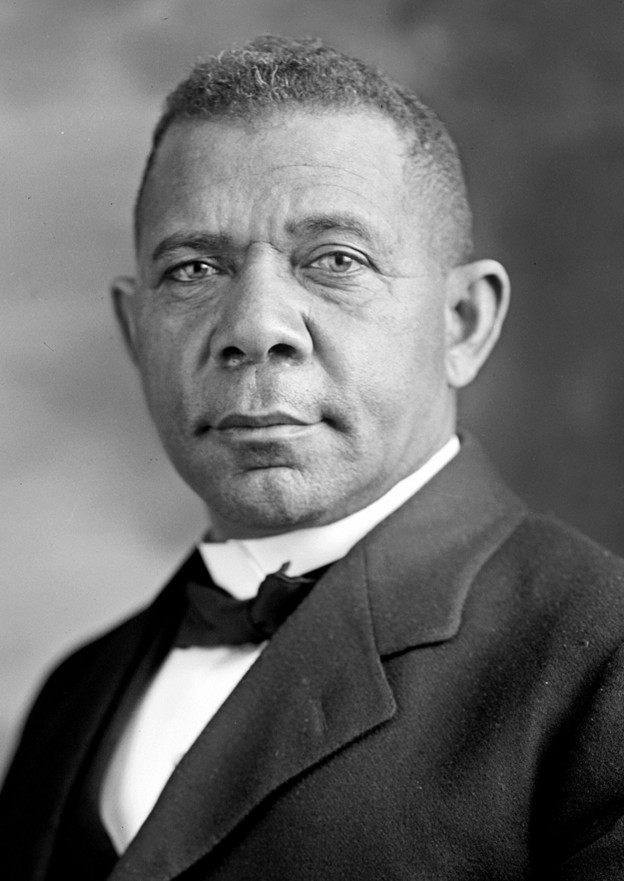
1856 - 1915
Booker T. Washington
Educator and Civil Rights Leader
Booker T. Washington (1856–1915) was one of the most influential African American educators, reformers, and leaders of the late 19th and early 20th centuries. Born into slavery in Hale's Ford, Virginia, Washington gained his freedom after the Civil War and pursued an education with relentless determination. He walked hundreds of miles to attend the Hampton Normal and Agricultural Institute in Virginia, where he excelled and embraced the values of industrial education and self-help. In 1881, Washington was selected to lead the newly established Tuskegee Normal and Industrial Institute (now Tuskegee University) in Alabama. Under his leadership, Tuskegee grew from a small school in a dilapidated church to a major institution with over 1,500 students. He emphasized vocational and agricultural training, believing that economic self-reliance and practical skills were essential to improving the lives of African Americans in the South. Washington became a national figure in 1895 after delivering the famous 'Atlanta Compromise' speech, where he urged Black Americans to focus on economic advancement rather than immediate civil rights, a position that drew both praise and criticism. He advised several U.S. presidents and was considered the most powerful Black man in America during his time. Though criticized by civil rights leaders like W.E.B. Du Bois for being too accommodating to segregation and white supremacy, Washington worked behind the scenes to support legal challenges to racial injustice and fund the education of Black students. He authored several books, including his bestselling autobiography Up from Slavery (1901), which remains a classic of American literature. Booker T. Washington's legacy is complex but undeniable. He laid the groundwork for Black educational and economic development in a hostile era, and his work at Tuskegee became a model for Black institutions across the country. His emphasis on dignity, hard work, and self-determination continues to inspire generations.
Key Achievements
- Founded and led Tuskegee Normal and Industrial Institute
- Delivered the famous 'Atlanta Compromise' speech in 1895
- Authored the bestselling autobiography 'Up from Slavery'
- Advised several U.S. presidents on African American issues